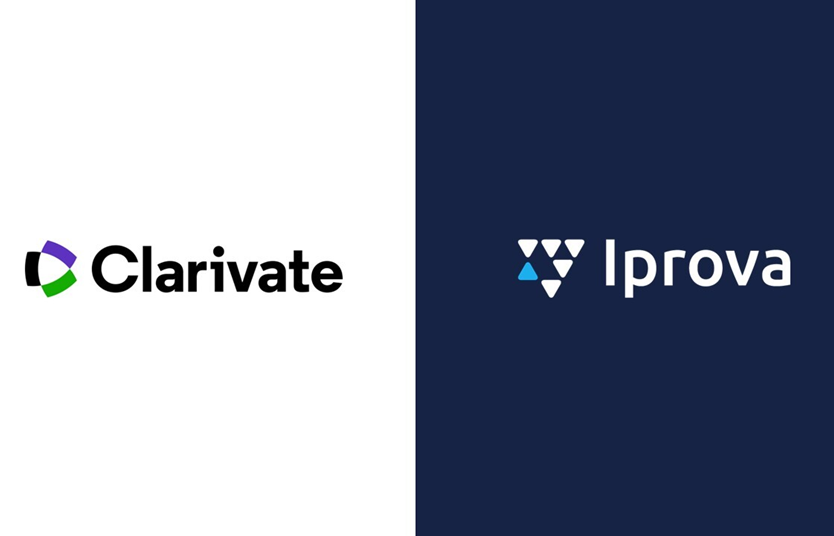Iprova’s Invention Developer and inspirational woman Bernadette Elliott-Bowman spoke with @WATC_WeAreTech about her journey in technology, her thoughts on women in tech and her views on overcoming barriers in the industry.
Having graduated from Aberdeen University with first class honours in Mechanical Engineering, Bernadette has led a varied career with roles including Undergraduate teaching assistant, Freelance journal editor, and Consultant – focusing on emerging technology tracking.
Bernadette joined Iprova two years ago upon achieving a PhD in Materials Science, attracted by the breadth and diversity that the role offers.
She is a member of the Institute for Engineering and Technology (IET) and, in her spare time, is a keen hockey player, coach and umpire.
Tell us a bit about yourself, your background and your current role
My name is Bernadette (Bernie) Elliott-Bowman, I’m 31 years old and I live near London with my wife and two cats. I studied Mechanical Engineering at the University of Aberdeen, followed by a materials science PhD at Imperial College London. I’m currently working as an Invention Developer with Iprova, a start-up that’s pioneering data-driven invention. The diverse range of different things I get the opportunity to work on is one of the most exciting elements of this job: projects I’ve worked on have ranged from surgical robotics and the internet of things to sports and fitness. In my spare time I like to play hockey with my local club and read sci-fi books.
Did you ever sit down and plan your career?
Yes, but that isn’t to say that my career has actually followed that plan in any way! The roadmap seemed fairly clear when I was first starting out at university – complete my engineering degree, join an exciting company, work towards becoming a chartered engineer. But I think what you actually want to do in life has a way of sneaking up on you, usually helped along the way by different opportunities that fall into your path. I definitely didn’t expect to be writing “Invention Developer” as a job title on my LinkedIn profile!
Have you faced any career challenges along the way and how did you overcome these?
After finishing my undergraduate degree in mechanical engineering, I switched disciplines to materials science. It was a steep learning curve, particularly when you’re trying to counterbalance learning a completely new field with actually starting your research. One of the things that really helped me in this situation was having a great support group of friends in the research community at Imperial College. Just having people to have a coffee or go to the gym with who are in the same boat as you, dealing with the same problems and stresses, is a huge boost. And that’s something that’s relevant for women in science and technology too – shared experiences let you know that you’re not on your own.
What has been your biggest career achievement to date?
Finishing my PhD is my biggest career achievement so far. To me, a PhD doesn’t only tell you that a person is an expert in a particular field. It tells you that this person is resilient, that they can work through intellectually, emotionally and psychologically challenging scenarios, and has the commitment and self-motivation to come out the other end with a positive result.
On a day to day basis, I’m lucky to work in an environment at Iprova where I’m able to create inventions across a really diverse range of technology areas that can end up as a patent. Given my background, I never thought I would be able to say that I’ve created patentable inventions in fields such as sports, industrial printing and augmented reality. Collaborating with machine learning software like we do at Iprova can really enhance your creative potential as an inventor.
What one thing do you believe has been a major factor in you achieving success?
Being open to a lot of different experiences and opportunities. Across my career and education so far, I’ve tried to take the time to become involved in other things outside my main line of study or work. As an example, while I was completing my PhD I was also involved in technology consultancy and freelance scientific editing. While there’s an element of needing paid work to survive as a PhD student, these are the kinds of things that really set me up for the future, broadening out my knowledge and skillset for employment in a sector that doesn’t necessarily only value high specialism like it may have done in the past.
What top tips would you give to an individual who is trying to excel in their career in technology?
Stay up to date with new developments and take opportunities when they present themselves. Technology is constantly shifting and developing, and anyone wanting to make a career in this sector has to be prepared and flexible enough to do the same.
Do you believe there are still barriers for success for women working in tech, if so, how can these barriers be overcome?
We’re making a lot of progress, but there are definitely still barriers for women working in tech. The lack of equality in pay (while a feature of other industries too) is a reason in itself why women may not choose to pursue a career, never mind the continuing lack of visibility of women in technology jobs as a whole. I can’t count the number of times I’ve walked into meetings, conferences and seminars and had to search the crowd for another female face, and at times it can make you feel like a bit of an oddity. Many of the barriers women face in the sector boil down to perceptions and assumptions, but there’s no easy solution for that.
What do you think companies can do to support to progress the careers of women working in technology?
It’s great that more and more companies are developing support initiatives to help women’s careers, whether this is networking and training opportunities or increasing visibility within an organisation. However, it’s crucial that women are consulted on what they actually want to get out of them, and how their needs can be met. Female employees will only feel more alienated if the career initiatives that tech companies are offering aren’t fit for purpose.
There is currently only 15% of women working in tech, if you could wave a magic wand, what is the one thing you would do to accelerate the pace of change for women in the industry?
My magic wand wish is summarised perfectly in a Medium writeup from Rebecca Shaw, which features the excellent quote by Sarah Hagi: “Lord, grant me the confidence of a mediocre white man.” Women face the daily challenge of convincing others (and sometimes themselves) that their work, ideas and opinions are just as interesting and valuable as anyone else’s. Finding the confidence to do that is half the battle.
What resources do you recommend for women working in tech, e.g. podcasts, networking events, books, conferences, websites etc?
Some of the institutes are working really hard to increase the visibility of and networking opportunities for women in tech. I’m a member of the Institution of Engineering and Technology (IET) and they hold regular women’s networking events and conferences. There are also some great Tumblr accounts for a more irreverent and relatable take on the day-to-day challenges women face in industry.
More from our feed
Iprova unveils high-performance data-driven invention software release
Read more
Clarivate Partners with Iprova to Streamline the Invention Creation and Submission Process
Read more
Everyone Is a Power User Now
Read more